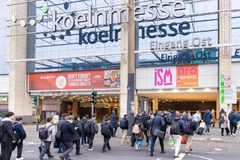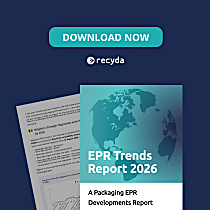Aimplas converts coffee grounds into plastic film for urban biowaste circularity boost

02 Jan 2023 --- Spanish biotechnology research group Aimplas is converting used coffee grounds into plastic film. The group says the project is another step toward circularizing the European economy by turning biological waste into resources – one of the main objectives of the European WaysTUP! project financed by the Horizon H2020 program.
Nuria López, the project’s principal investigator at Aimplas, explains: “WaysTUP! is a clear example of how biowaste can play an important role in the transition toward a circular economy by avoiding biowaste generation and harnessing its potential as a source of high-value secondary resources.”
“In our case, we’re transforming coffee waste into plastic film for packaging. Meanwhile, other project partners, such as SAV – Agricultores de la Vega de Valencia, project coordinating partners responsible for recovering waste to produce food additives, feed and oils for the food and cosmetic industries.”

These are three different ways to recover common waste and, in this case, coffee. Through this project, various forms of urban biowaste, including fish and meat waste and used coffee grounds and cooking oil, are being transformed into new biobased products, such as food additives, condiments, insect protein, bioethanol, biosolvents and bioplastics for packaging.
 Bio-based films could become common answer to fossil fuel-based materials.The bio-based plastic film produced by Aimplas was obtained from Polyhydroxyalkanoates (PHA) from restaurant coffee grounds collected by Bio-Bean in the UK. Aimplas first formulated the PHA so it could be processed by extrusion and then manufactured the film, which can be used in different types of flexible packaging.
Bio-based films could become common answer to fossil fuel-based materials.The bio-based plastic film produced by Aimplas was obtained from Polyhydroxyalkanoates (PHA) from restaurant coffee grounds collected by Bio-Bean in the UK. Aimplas first formulated the PHA so it could be processed by extrusion and then manufactured the film, which can be used in different types of flexible packaging.
Citizen awareness
The WaysTUP! project aims to improve citizens’ and local communities’ perception of the importance of urban biowaste as a resource. The idea is to promote the community’s active participation in selective urban biowaste collection for subsequent recovery.
In addition, local administrations are receiving guidelines on adopting new organizational models in favor of urban biowaste recovery and European-level evidence-based policy recommendations for decision-making.
Recently, PackagingInsights spoke to Johana Carolina Andrade Chapal, a researcher of biodegradability and compostability at Aimplas, about the group’s targets for this year.
“Different products with a wide range of applications will be developed, aligned in the context of the circular economy,” she said.
“Broadly speaking, the methods for obtaining PHAs will be optimized to improve performance, chemical modifications will be made that allow bioplastics to be processed using different methods effectively, polymeric matrices will be functionalized to develop active food packaging systems and generate agricultural applications that promote soil protection.”
“At the level of laboratory tests, the sector industries will have the possibility of carrying out a screening test of samples in development through accelerated biodegradation tests. The results of this test allow them to make appropriate market decisions in a short time,” she concluded.
Edited by Louis Gore-Langton











